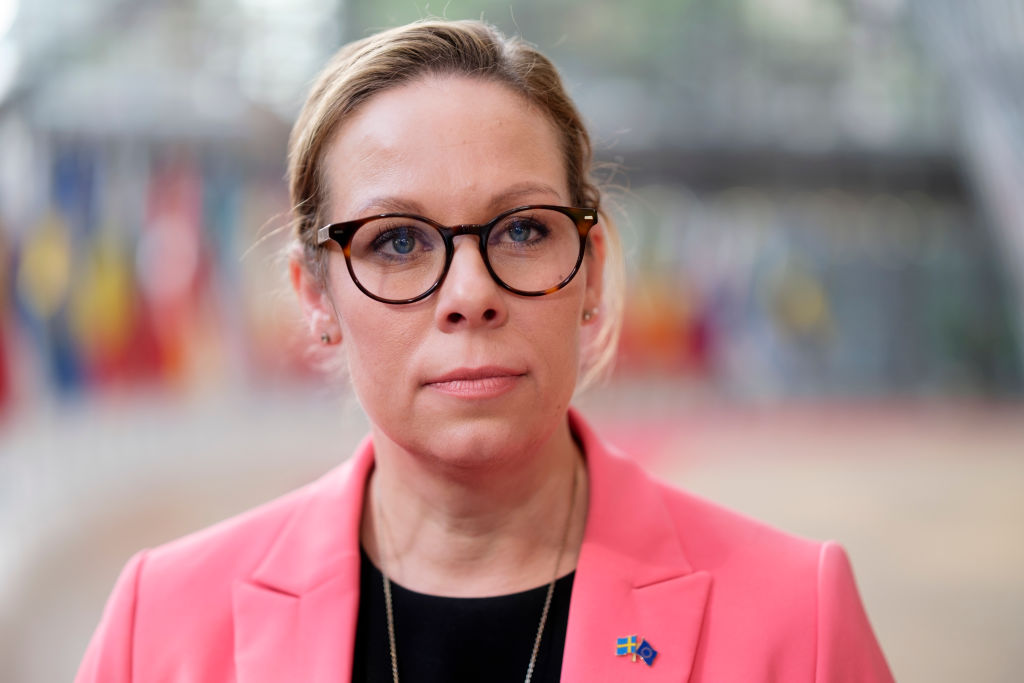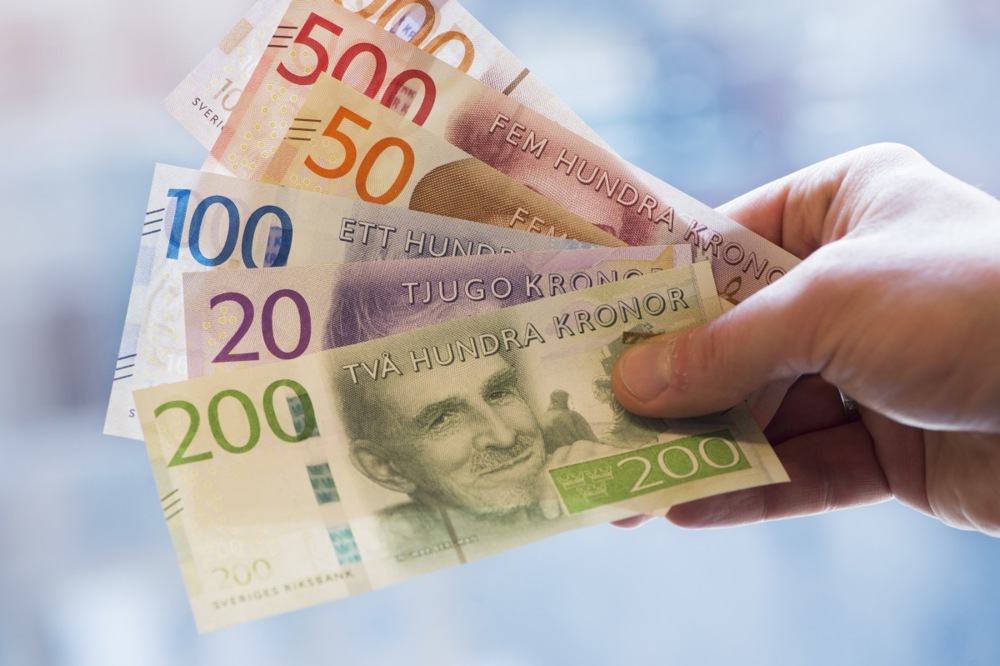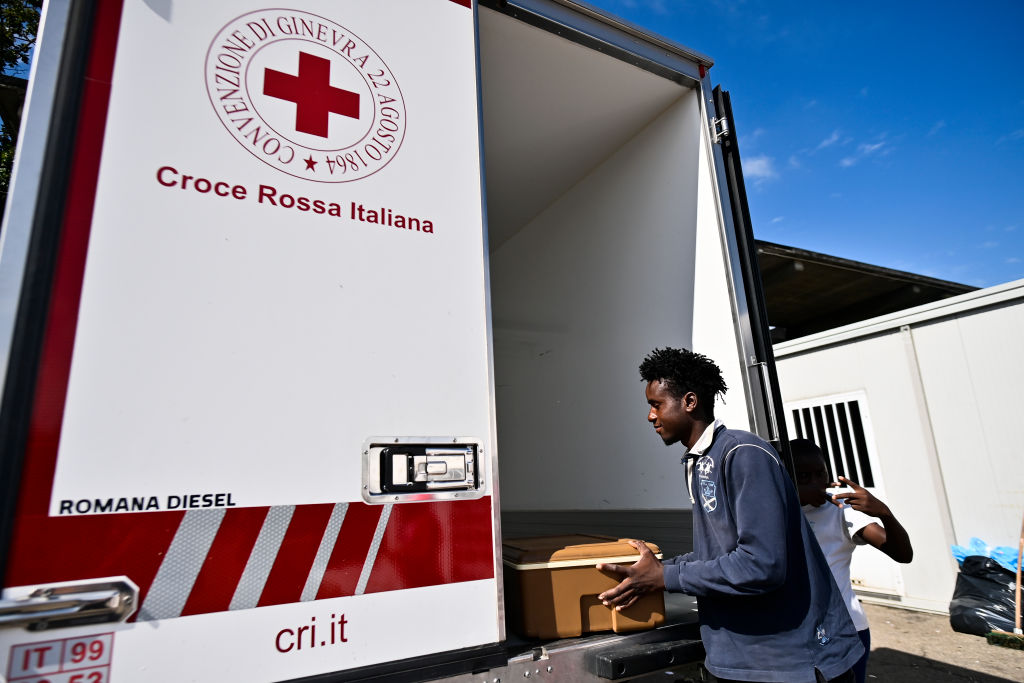For the first time in 50 years, Sweden has recorded net emigration as migration to the country has fallen.
According to the Swedish Migration Agency’s predictions, the Scandinavian nation is on track to have the lowest number of asylum seekers since 1997. More people are now leaving the country than entering.
“While the number of asylum seekers in the EU has stabilised at a high level, it continues to decline in Sweden,” Minister for Migration Maria Malmer Stenergard of the centre-right Moderate Party said in a press release.
According to government data, a total of 5,600 asylum applications have been registered between January 1 and July 28 2024, a decrease of 27 per cent compared to the same period last year.
In 2023, more people originally from Iraq, Somalia, and Syria left Sweden than entered it.
“The government’s efforts have produced results. The number of asylum applications is looking to be historically low, asylum-related residence permits continue to decrease and Sweden has net emigration for the first time in 50 years. This development towards sustainable immigration is necessary to strengthen integration and reduce social exclusion,” Stenergard noted.
She said government policies have most likely played a role in the drop in migration to Sweden.
For years, Sweden has pursued progressive immigration policies, accepting the most migrants per capita in Europe, and supporting them with significant state aid.
That became expensive to uphold and a rise in crime led to an electoral turnaround. Since the end of 2022, a Conservative minority government has been in power, leaning on the pivotal support of the hard-right Sweden Democrats, who have strongly opposed migration to Sweden.
High crime levels in Sweden are pushing rescue workers to drastic measures; those in the city of Uppsala, near Stockholm, will be equipped with bulletproof vests. https://t.co/dn6B7sYKIs
— Brussels Signal (@brusselssignal) March 25, 2024
Commenting to Brussels Signal, Nima Gholam Ali Pour, MP for the Sweden Democrats said his party was “satisfied with the figures.”
“While asylum immigration to the EU is reaching record levels, asylum immigration to Sweden is decreasing. However, this is mostly the result of signalling policies and a clear direction from the government to reduce immigration, such as the decision to accept fewer quota refugees.”
“Most of the legislation that will be enacted through our cooperation with the government will be passed in 2025 and 2026. According to the Sweden Democrats, this will constitute the major paradigm shift. It is only when we achieve a change in migration policy through legislation, not just in migration reception, that both we and our voters will feel that a real change has been implemented,” the Swedish MP said.
“Legislation that will be crucial for migration policy and will be passed during the term includes, among other things, legislation ensuring that people who are not Swedish citizens need to qualify for welfare, as well as stricter requirements for citizenship. A mandatory reporting requirement for municipalities and authorities regarding illegal immigrants will also be important. These laws related to migration are more important than the positive results we are seeing now as we approach the midpoint of the term.”
Sweden already made some changes to its migration policies, leading to faster registration and processing procedures while actively encouraging the voluntary return of immigrants, combined with systematic deportations of rejected illegals.
It also coupled foreign aid programmes with the willingness of countries to readmit their citizens deported from Sweden.
A new official proposal suggests a possible voluntary exit scheme, where Stockholm would offer 10,000 Swedish crowns — or around €870 — plus travel costs, for migrants to leave.
Sweden still struggles with some negative results of previous mass immigration, including organised crime, gang violence and the illegal drug trade.
At the start of August, Denmark’s Minister of Justice Peter Hummelgaard complained about what he termed “child soldiers” from Sweden involved in criminal cases in Denmark.
Denmark has said it will tighten its border controls with its Nordic neighbour after a surge in shootings in Copenhagen allegedly involving Swedish teenagers.
Sweden‘s security service has accused the Iranian government of using criminal networks within Sweden to carry out violent acts against other states, groups, and individuals. https://t.co/JIwXEOuynE
— Brussels Signal (@brusselssignal) May 31, 2024





